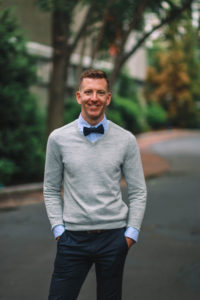Special Issue Editor's Letter: Religion, Activism, and Community Action
The Editor reflects on groups coming together during difficult times and the models they offer us
 Dear Revealer readers,
Dear Revealer readers,
Earlier this year, the writer Jay Michaelson (a journalist with a J.D., a Ph.D., and rabbinic ordination) published an article I have been thinking about for months called “Have We Become the ‘Ordinary Germans’ Now?” In the piece he reflects on how, growing up Jewish in America, he was taught that “ordinary Germans” were complicit in much of the antisemitism that swept Germany in the 1930s. The majority of Germans, he reminds us, never revolted or tried to stop each new antisemitic law the Nazis passed that made life incrementally more precarious for Jews. They simply went about their lives. In turn, many observers have since argued that ordinary Germans were essential to the deportation and murder of Germany’s Jews because the Nazis needed regular citizens who would not demonstrate or block their efforts, large swaths of the population who would continue living as if nothing bad was happening because it wasn’t happening to them.

Revealer Editor, Brett Krutzsch
And so, Michaelson asks, sitting in the comfort of his suburban home as masked ICE agents snatch people from their places of work and elsewhere throughout America, “Have we become the ordinary Germans now?” His “we” is the American Jewish community as he raises concerns that his fellow Jews are not doing enough to protect the country’s most vulnerable. But the “we” could easily extend beyond American Jews to include all of us not currently targeted by ICE or the administration. Michaelson is quick to note that he does not foresee America in the 2030s mirroring Germany of the 1940s with death camps and the mechanisms to murder an entire population from the continent. But he maintains, things don’t have to lead to mass extermination in order to be horrifying or incumbent for more people to intervene now. As he points out, we already know that, since January, people in the United States have been “tortured, starved and even deported without due process” after ICE agents rounded them up. And that was all before Congress approved a $70 billion increase to ICE’s budget.
One reason I have been thinking about Michaelson’s question for months is because I have had several conversations with people who are horrified by numerous things taking place in the United States, from ICE raids and the building of detention centers like “Alligator Alcatraz,” to the targeting of transgender Americans and attacks on freedom of speech. In many of these conversations, people express concerns that they aren’t doing enough, that they don’t know what exactly to do that will make a difference, and that they fear they could face retribution at their places of work or elsewhere for speaking up. To me, these sound like people who don’t want to be like “ordinary Germans.” But they don’t yet know how to proceed. And I suspect millions of Americans can relate to that sentiment right now.
In the spirit of wanting to do more, I am pleased to share The Revealer’s 2025 special issue on “Religion, Activism, and Community Action.” For the past five years, The Revealer has published a themed special issue annually that touches on especially important topics. Last year’s special issue was on “The Threat of Christian Nationalism.” Earlier special issues focused on “Religion and Reproductive Rights,” “Trans Lives and Religion,” and “Religion and Sex Abuse.” I can confidently say that the articles in all of those issues are as relevant today as when we first published them.
Our 2025 special issue continues this tradition and offers an array of articles that look at how people come together during difficult times to create a more equitable and just world. Our goal for this special issue is to give readers a sense of how people have united to work for change and to offer potential models that others could follow. Some of the articles examine activism taking place today, while others look at how communities came together years ago to fight for justice and to consider how that might provide a roadmap for people right now.
The Revealer’s 2025 special issue on “Religion, Activism, and Community Action” opens with Barbara Sostaita’s “Can Anyone Be Against Us? Resisting Disappearance across the Américas,” where she compares how ICE is currently disappearing people with tactics similar to those used in Argentina decades ago and how, in both instances, religious leaders worked to protect people from being abducted and disappeared by the government. Then, in “The Cost of Reproductive Freedom,” our columnist Gillian Frank examines how anti-abortion groups have tried to make abortion services less available by making them too expensive for most women and, in turn, how pro-choice religious communities have responded by trying to help people pay for reproductive healthcare. After that, in “The Spiritual Is Political,” Ken Chitwood explores a prominent multifaith cathedral in the country of Georgia that is bringing people of multiple religious traditions, ethnicities, and sexualities together to fight against Georgia’s authoritarianism as they try to return Georgia to a democracy, a model of coalitional activism that could be replicated elsewhere. Then, in “The Catholic Worker’s Radical Vision,” Diana Kruzman investigates the current operations and history of the Catholic Worker, a movement with foundations in fighting poverty that now includes groups around the world protesting war, the climate crisis, racism, homophobia, and more. Following that, in “Building Resistance: On Church, Space, and Crisis,” Lynne Gerber looks at the Metropolitan Community Church of San Francisco, a queer church that became a center for activism during the AIDS epidemic and the previously unimagined coalitions that came together because the church had the space to unify communities. Next, in “A Rabbi’s Activist Journey,” Rebecca Alpert reflects on her life as a feminist rabbi who fought for LGBTQ equality and against racism, and, in particular, her path to becoming a public, pro-Palestinian activist. And, in “Exploring Religious Diversity and Overcoming Differences through TV,” Reina Coulibaly interviews Simran Jeet Singh about his forthcoming television docuseries Undivided, and what it has to say about the possibilities of Americans from different religious backgrounds working together despite the insistence that we are profoundly polarized.
The special issue also includes the newest episode of The Revealer podcast: “Religious Communities Supporting Undocumented Immigrants.” Barbara Sostaita joins us to discuss why some religious people believe it is their duty to help migrants, the specific things religious communities are able to do for undocumented immigrants, and what people who are outraged by ICE raids and deportations can do to help immigrants today. You can listen to this episode on Apple Podcasts and Spotify.
As I reflect on the articles and podcast episode in this special issue, I am struck by the myriad ways people fight for freedom, democracy, and equality in community and how new coalitions have formed because of shared commitments to justice. These insights give me optimism, and I hope they do the same for you, and possibly even ideas for how you might engage in activism you find meaningful. Like Michaelson, and I’m sure countless others, I do not want to be an “ordinary German” as the government targets particular groups for scapegoating, violence, and deportation. I hope this special issue gives you inspiration and courage.
Yours,
Brett Krutzsch, Ph.D.